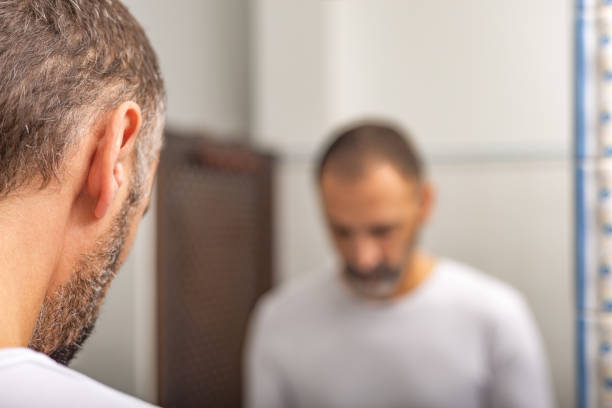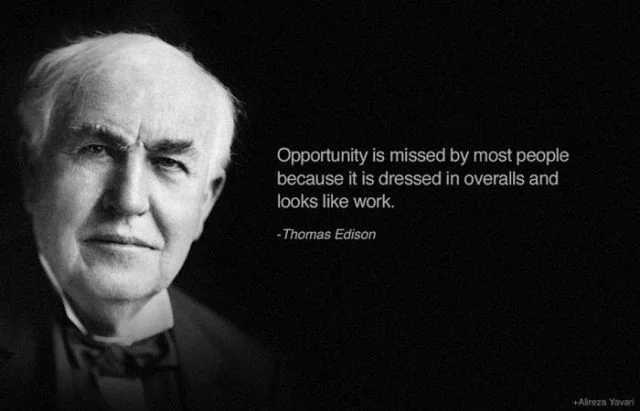We have this emotionally draining tradition as a society to act like we are constantly living in the most important moment in human history. The people with little to no knowledge of human history are most susceptible to believing this myth. This is especially prevalent during election cycles, during which the media on both sides of the aisle act as though the outcome must determine your happiness level for the next 2-4 years.
Admittedly, there is a tough balance to strike. On one hand, we have the truth that America, the Catholic Church, and the world at large have survived tougher, more divisive times than these. On the other hand, we currently face challenges that our ancestors would have never imagined and the battlefield for truth, evangelization, and freedom has morphed, with the power of the internet, into something that has never been seen before.
These two opposing realities draw one of two responses from most of us: complacency or fear.
Complacency can easily be misinterpreted as trust. People who have high trust in the institutions believe that all these problems we currently face will ultimately work themselves out. Within the Church, we see this position often manifest as a misconstrued trust in God – one which ultimately believes that God will take care of all things without requiring much assistance from us.
Fear usually comes alive through obsessive zeal. The people who fall into this category simply can’t turn off the political podcasts or TV channels. They live in constant anxiety and anger, leading to a desire to put all those around them in that same never-ending state, which they themselves loathe.
I’d venture to guess that every American Catholic knows people who fall into both camps. We all err to one side or the other, usually finding ourselves pretty frustrated with those who are opposite to us. As someone who has shifted from the extreme of complacency to an extreme of the obsessed, I find the former to be much more frustrating. Fear, in a time where belief in universal truth and the value of human life are so rapidly on the decline, seems to be a very understandable position – as where complacency and indifference can border on immorality.
I truly believe there is one solution to both of these extremes, which is to actually live in what we call reality. This can be so challenging for the complacent and indifferent types. After all, it is much easier to live life unaware of the many evils that have become commonplace in our society. This ignorance leads many in the Church to believe that our cultural, political, and social opponents are not the same as they were 20-30 years ago.
Hilary Clinton had once spoken the famous line that abortion should be “‘safe, legal, and rare,” which was the position held by most pro-choice candidates and politicians. Their arguments flowed out of a place of compassion for women or young girls who find themselves in extreme circumstances. Most pro-choicers back then truly didn’t believe, albeit wrongly, that it was a human life until there was at least a heartbeat or some other developmental milestone.
Now, we see men and women who openly mock aborted babies. “Shout your abortion” and abortion parties have become normal slogans and ways to celebrate, proudly, the ending of a human life in the womb. Many pro-choice people today acknowledge that this is human life we’re talking about, but they simply believe that the importance of “choice” for a woman supersedes the right to life for a baby.
That’s a different argument.
Let’s look at another example. When Barack Obama ran for President in 2008, he campaigned on the belief that marriage was between one man and one woman. Who would’ve thought that just 10-15 years later, we would be seeing the complete destruction of gender? Transgender ideology has expanded from the promotion of empathy for those struggling with gender dysphoria into a complete, coerced acceptance of the “truth” that a man who believes he is a woman actually becomes one.
That’s a different argument.
This is where complacency has gotten us. The Catholic standpoint has become much harder to convey. Anyone who has ever debated abortion with a friend or family member knows that it is already a challenging, sensitive experience. However, it was much easier previously to argue the science behind “human life begins at conception” to someone who believes otherwise, than it is now to argue the philosophical and theological principle that “human life has value” to someone who thinks it does not.
It was easier to reason with someone who promoted empathy to the point of acceptance and enablement for a person struggling with gender dysphoria when that someone also shared your belief in reality, in truth. Such a person could perhaps understand your point that because it was not true, you had no moral obligation to go along with and promote it. It’s much harder to argue with someone who does not believe in what we call “truth.” The ideas that you can’t change reality, that each individual can’t change or create words to fit their feelings, and that it’s not virtuous to participate in a lie or falsehood are all foreign to the person who believes that we each create our own “truth.”
How did we go from arguing over science and empathy to much deeper, more fundamental things like the value of human life and the existence of truth? Too many good men and women found themselves indifferent during the transition. We sat aside and claimed politics had no place in Church, or in the life of a Christian in general. Now, the generation before us has left us with an utter mess when it comes to evangelization. If you don’t know, it’s much harder to evangelize a relativist who believes life is meaningless and truth nonexistent in 2022 than it was to evangelize a complacent or fallen away Christian in the ‘90s or early 2000s.
That’s precisely why the response of fear is so understandable. We should fear for the souls of this lost generation that we are raising. Further, that fear should move us toward action. And action, when properly aimed and focused, always helps to alleviate anxiety.
We must take action within our realm of control. That realm begins first and foremost with ourselves. To be anxious about the world and to be personally living a life of sin is foolishness. We must, if we are to be effective, strive for sainthood more fervently than ever before.
Next, we must strive to impact our family and friends through both our words and our example. When people encounter true Christian love, encouragement, and mercy, they are much more receptive to the truth of the Christian faith.
Lastly, we must entrust everything to God. When we recognize that we are helpless without God when it comes to dealing with our own sinful inclinations, the conversion of our friends and family, and the transformation of culture, we are actually able to succeed by God’s grace.
It’s good to stay informed. We must. God wants to win our culture back to His Sacred Heart, and He wants to use us to do it. Your “yes” is needed, because you were born to be an instrument at this very time. So while we don’t need to act like this is the most important time in human history, we do need to act as though today is the most important day of our lives to be a saint, loving others radically enough that they see that there is Truth who is worth following.




















